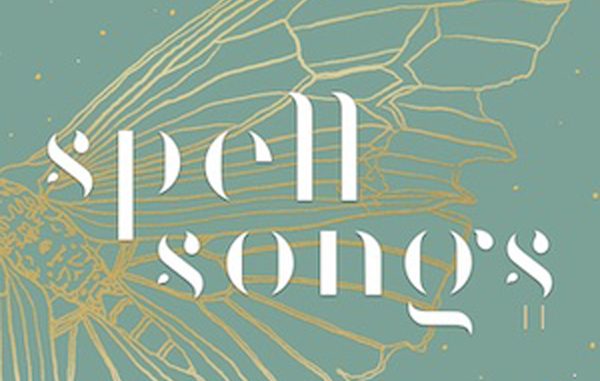
Americana comes to Belgravia? Well, Cadogan Hall is situated plum by Sloane Square and is as plush a venue as you’d expect in this location. And for tonight’s audience the musical offering is every bit as top drawer. The project, which if we have to slot it in one simplistic genre would surely go into ‘Folk’, has been hoovering up plaudits and five stars across the musical and cultural media, and post-pandemic this is its first continued chance to go on tour.
‘Spell Songs’ was inspired by ‘The Lost Words’, a book by leading nature writer Robert MacFarlane and with illustrations provided by artist Jackie Morris. It was the pair’s response to the wider societal implications of nature words being dropped from a standard Children’s English Dictionary. When the group members got to work, this then evolved into a broader musical protest at the loss of the natural world around us. Their first album, ‘The Lost Words: Spell Songs’, was released in 2019, with continued and growing popularity across musical genres, and was followed by ‘Spell Songs II: Let The Light In’, released in December 2021
The collective’s individual members all have well established solo careers and so the pooling of ideas and creativity is highly intriguing. There is a major Scottish rural and highland and island presence, with five of the seven having roots there, and this is linked with the very different West African vibe brought in by Seckou Keita from Senegal. Whilst Julie Fowlis jokes that the Gaelic-Senegalese Exchange Programme she’s driving is currently at a low take up, this musical melee works very well.
The formal listing of the group is: Kris Drever – Vocals, Acoustic Guitar, Electric Guitar, Bass Guitar; Julie Fowlis – Vocals, Whistles, Oboe; Seckou Keita – Vocals, Koras; Jim Molyneux -Vocals, Piano, Rhodes, Synths, Drums, Percussion Rachel Newton – Vocals, Electroharp, Fiddle, Viola; Karine Polwart Vocals, Tenor Guitar, Indian Harmonium, Bass Guitar; Beth Porter – Vocals, Cello, Ukulele, Recorders. The septet is enviously stacked with vocal strength and across the set everyone has their own lead vocal showcases and similarly with the array of musical instruments deployed. The list of credits doesn’t begin to do justice to the deftness with which things creep in and out of tracks. The kora in particular has a strong influence, as does the harp.
They are on stage close to two hours, with the badinage kept tight, and throughout there is a sense of their joy and awareness of their serendipitous coming together at this time to do this glorious work. Perhaps the Covid world in which, for most of us for much of the duration, we have had more time to focus on our natural and elemental world whilst much of the daily routine and social aspects were put on hold, has given the work a particular timeliness, but the quality of the music has its own power beyond any particular short term historical context.
Musically and lyrically we are never far from the flora, fauna and landscapes and in particular the seas and mountains of the natural world. Even ‘Heartwood’, a song with urban bureaucracy as it’s source – namely the Sheffield City Council strategy to demolish much of the city’s tree stock – is sung from the narrative perspective of a blighted tree, with the municipal tree surgeon addressed as ‘the cutter’. The specialness of the event is enhanced by the presence of Jackie Morris who does three sets of -painting-by-music where we watch her paint the subject of the song whilst the song is being played – clever camera work on a large overhead screen showing the work take shape in the moment – whether a fox, birds on the wing or a pair of otters.
‘Selkie-Boy’ is one of numerous highlights, coming over shimmering not unlike your favourite Patty Griffin song. In a previous world, it could have been The Single and is segued into after a stunning celestial Gaelic chant by Fowlis. ‘Curlew’ also stands out, Newton and Driver leading the vocals. ‘Thrift’ is the first set’s closer, with the name of the plant also doubling, as Fowlis jokingly reminds us, as a traditional national trait of the five Scottish members. It’s not until the final song ‘Oak’, played as an encore, that we hear a relatively straight down the line folk rock song dominated by the dual guitars of Drever and Polwart and Molyneux’s drums. Penultimate song ‘Bird of the Blizzard’ was dedicated to folk stalwart Norma Waterson whose passing had been announced earlier that day.


